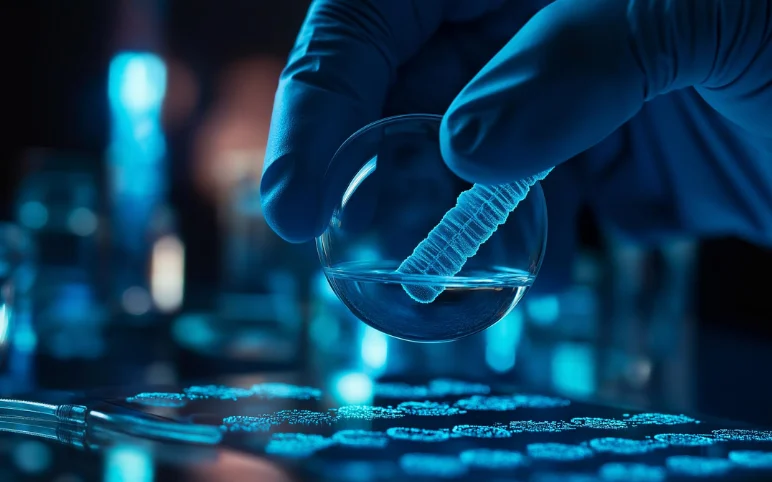Roche’s Genentech taps Adaptimmune for T-Cell Therapy Collaboration for USD 3 Billion
A collaboration valued more than USD 3 billion, Genentech, a member of the Roche Group, declared it will collaborate with Adaptimmune for developing and commercializing allogeneic T-cell therapies to treat multiple cancer indications.
Under their deal Genentech will work with Adaptimmune to develop “off-the-shelf” allogeneic T-cell therapies for up to five shared cancer targets, and a novel allogeneic personalized cell therapy platform from which personalized allogeneic T-cell therapies would be developed.
Adaptimmune CEO Adrian Rawcliffe said in a statement that through this deal, their platform will form the basis of a personalized allogeneic cell therapy vision, in which any patient can receive a T-cell product for their cancer, which is a significant step towards their goal of making cell therapies both curative and mainstream.
For each component, Adaptimmune has agreed to supervise clinical candidates development by using its induced pluripotent stem cell (iPSC) derived allogeneic platform for production of T-cells (iT cells). Genentech accepted, in turn, to supervise the T-cell receptors (TCRs) and their subsequent clinical development and commercialization.
Owlstone Medical raises USD 58 Million in Series D round
Breath Biopsy solutions provider Owlstone Medical has raised a total of USD 58 Million in a Series D financing round.
The round was led by returning investor Horizons Ventures. Many existing and new investors also came on board. The latest fundraising gets the total amount raised by Owlstone Medical from the market to more than USD 150 Million.
The UK-based company has developed a platform in Breath Biopsy for use in routine diagnostic testing and biomarker discovery. Currently, Owlstone Medical proffers research products and services to pharmaceutical and academic organizations. In addition to that, it has a pipeline of research use only (RUO) panels and diagnostic tests in development for lung cancer, liver disease, and respiratory disease.
Owlstone intends to utilize the new proceeds to bolster the development and commercialization of these tests. A portion of the new funding will also be utilized to improve the Breath Biopsy platform.
Owlstone Medical co-founder and CEO Billy Boyle said that Owlstone Medical continues to make significant progress, including substantial advancements in Breath Biopsy platform, such as the development of EVOC Probes; substantial improvement in their test pipeline with the launch of the Respiratory Diseases RUO Panel and the publication of crucial study results for liver disease; and entering into a collaboration with Functional Gut Diagnostics for the providing of clinical tests for small intestinal bacterial overgrowth (SIBO) and food intolerance.
TransMedics receives FDA approval for its OCS heart system
TransMedics announced that it received FDA premarket approval for its OCS Heart system.
Andover, Massachusetts-based TransMedics designed its OCS Heart system for use with organs from donors after brain death with an indication for preserving donor’s hearts deemed unsuitable for procurement and transplantation at initial evaluation due to limitations of prolonged cold static cardioplegic preservation, according to a news release.
The company said that the indication comes on the back of results from the OCS Heart Expand trial, the associated OCS Heart Expand continued access protocol, and the OCS Heart Proceed II trial.
Premarket approval follows FDA approval for and the subsequent commercialization of the OCS Lung system. The company continues to eye FDA approval for the OCS Liver system. An FDA advisory panel issued a favorable vote supporting approval in July.
TransMedics President and CEO Dr. Waleed Hassanein said in the news release that they are thrilled to achieve this vital milestone for heart transplantation in the United States. This culminated in several years of collaboration with leading heart transplant experts and the FDA to bring their lifesaving OCS technology to help more heart transplant patients in the U.S.
Google, Mayo Clinic build a new type of brain-mapping AI algorithm
Neurostimulation is a powerful tool that is already being utilized to treat chronic pain, anxious depression, overactive bladder, and more by sending electrical pulses to areas of the brain linked to each condition.
Despite the technology’s proven success, however, it only works if the correct areas of the brain are stimulated, which is often easier said than done.
To proffer a map showing the way forward, the Mayo Clinic and Google Research’s Brain Team are developing a new artificial intelligence algorithm to chart out the neural connections spanning each region of the brain.
Using a technique dubbed “basis profile curve identification,” the algorithm goes deeper than traditional methods, where researchers monitor all regions of the brain for widespread reactions to electrical pulses sent to just one area at a time. That method is restricted by the difficulty of measuring potentially thousands of network interactions at once, many of which take complex, unique forms that can not be measured by this “one-size-fits-all” framework.
Instead, the Mayo and Google researchers implanted an electrode array on the surface of a patient’s brain with a brain tumor. Before the tumor’s removal, the electrodes were repeatedly activated in short bursts. With each activation, the researchers collected anywhere from hundreds to thousands of data points indicating an individual impulse’s effects on some areas of the brain.
From there, the AI algorithm was tasked with analyzing those thousands of interactions, characterizing them by their shapes, and compiling them into a map of the web of connections across the entire brain.
This process was detailed in a study published this month in the journal PLOS Computational Biology. It also gives other scientists access to the new AI technique for their neurological research projects.



